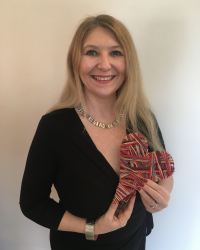Be your own therapist: A beginners guide to self-reflection
Why learning to self-reflect matters
It’s a strange thing, but as human beings we are often unaware of things about ourselves that would be rather useful to know. Even when other people helpfully point out our personal foibles and offer advice to help us correct the most annoying or self-limiting of traits, we can easily and repeatedly fail to recognise what may be all too evident to those around us.
And that’s because confronting the uncomfortable truth can be challenging and even downright embarrassing. Wouldn’t you rather believe that your latest temper tantrum, or emotional outpouring was an appropriate response to a mean provocation from a colleague or your partner, and not your ‘inner child’ letting the world know “it’s just not fair!”? Of course you would! It’s only natural to try and point the finger elsewhere or pretend no one has noticed. The trouble is, without some degree of self-knowledge, this hidden ‘stuff’ can hold us back from getting what we most want in life, like love and satisfaction, happiness and success.
Fortunately, this is not a hopeless situation. Many people turn to counsellors and specialist therapists such as myself to help them to discover what’s blocking their path to fulfilment. And of course, there is much a professional can offer to facilitate that process. I also believe though that learning the skills for personal-discovery and self-coaching are invaluable life lessons that can support clients far beyond their last session and that’s why I encourage everyone to practice the art of self-reflection.
So, what is reflection
To me reflection is an active process that can be learned and honed over time, as with any skill. In essence it is a deliberate and conscious attempt to stand back and reflect on our thoughts, feelings, motivations, reactions and responses to glean a more honest picture of not just how we are behaving, but why. When we can describe what’s going on, and observe how this influences the outcomes we get in life, love and relationships, it becomes possible to gain more control over the emotional blind spots and helps us to stay focused on our goals so we are more likely to achieve them.
In many ways, reflection provides a response to Einstein’s often quoted aphorism about the definition of insanity being the process of doing the same thing over and over again and expecting a different result. If reflection is done well, clues will naturally emerge as to how you need to do things differently in order to get the (more positive) result. If you want to break repeating patterns and create new results, your job is then basically to try out different ways of operating and see what happens. And whatever happens, you can reflect, learn from and try again.
How to do reflection
Although we’re not always good at it, everyone I’m sure will be familiar with the basics. Don’t we all spend at least some of our time thinking over what we have said and done when things haven’t gone to plan, then consider how things might have played out differently ‘if only’, or ‘what if’? Or we later note that an apparently minor decision made long ago came to have a significant effect on where we are now. Who hasn’t said “if only I had known then what I know now” or “if I had the chance again I would do it differently”?
If the answer here, is ‘yes’ then there is little new to master, except the discipline of doing it and finding a way that works for you. Many people write a journal or make notes, but just allowing your mind to float free on a particular topic, turning over the ‘what if's’, and doodling on a blank sheet of paper can be just as useful if you bring some structure to it.
Start out with these 10 suggestions:
1. Bring some focus to a recent event that didn’t go your way
2. Hold up a mirror to yourself – no one else
3. Focus on a desired outcome and what was missing from you that could have made the difference
4. Practice being one step-removed from the drama. See yourself as a character in a film to be observed
5. Go round in circles! Deliberately turn things over in your mind until your role becomes clear
6. Look for links. The more you practice reflection, the more likely you will be to notice recurring themes in how things play out in your life
7. Be honest. Reflection requires a commitment to simply being honest about yourself
8. Be courageous. It takes courage to be authentic and open to considering your own flaws
9. Test it out. The process is an iterative one not a guarantee of quick success!
10. Trust yourself to recognise when you are getting close to the insights that matter - when something fits for you, and when it doesn’t, you’ll just know.

Find the right counsellor or therapist for you
All therapists are verified professionals
